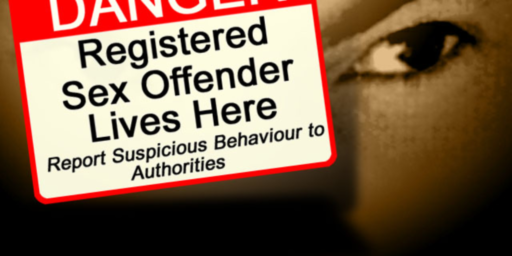Do Not Call Registrations Expire Next Summer
The national Do Not Call registry turns five next June and early registrants will fall off the list if they don’t re-register.
The cherished dinner hour void of telemarketers could vanish next year for millions of people when phone numbers begin dropping off the national Do Not Call list. The Federal Trade Commission, which oversees the list, says there is a simple fix. But some lawmakers think it is a hassle to expect people to re-register their phone numbers every five years.
Numbers placed on the registry, begun in June 2003, are valid for five years. For the millions of people who signed onto the list in its early days, their numbers will automatically drop off beginning next June if they do not enroll again. “It is incredibly quick and easy to do,” Lydia Parnes, director of the FTC’s bureau of consumer protection, said in an interview with The Associated Press this week. “It was so easy for people to sign up in the first instance. It will be just as easy for them to re-up.”
But Rep. Mike Doyle, D-Pa., says people should not be forced to re-register to keep telemarketers at bay. Doyle introduced legislation this week, with bipartisan support, to make registrations permanent. “When someone takes the time and effort to say ‘I don’t want these kinds of calls coming into my house,’ they shouldn’t have to keep a calendar to find out when they have to re-up to keep this nuisance from happening,” Doyle said in an interview.
The FTC built the five-year expiration date into the program to account for changes, such as people who move and switch their phone number, Parnes said. Doyle, however, points out that the list is purged each month of numbers that have been disconnected and reassigned to new customers. People can register their home and cell phone numbers or file complaints at http://www.donotcall.gov or by calling 1-888-382-1222.
The registry prohibits telemarketers from calling phone numbers on the list. Companies face fines of up to $11,000 for each violation. Organizations engaged in charitable, political or survey work are exempt. Companies that have an established business relationship with a customer also may call for up to 18 months after the last purchase, payment or delivery.
To the extent Congress needs to step in to deal with telemarketing, the opt-out approach is incredibly inefficient. Why not simply outlaw the practice, period, except to people who have specifically opted in? This would, I’d wager, result in a much smaller database and make it far easier for consumers while also making it less likely that companies will be fined for accidental violation.






Why not simply outlaw the practice, period, except to people who have specifically opted in?
Because courts have ruled that that would violate the First Amendment.
Well, there is that. But I’m not sure I see the distinction between banning speech to people who have individually requested to be left alone vice people who have, through their legislature, requested to be left alone. Does the explanation involve a penumbra?
…Because courts have ruled that that would violate the First Amendment.
Which courts? and if so why would not this be held up as exhibit A in judicial activisms run amok on a grand scale?
The phone is mine, I own it, I pay for the service, not the telemarketer. If property rights mean anything it should mean that no one has the right, without my specific permissions to use my phone and the service I pay for to sell me something. They have no more 1st amendment right to call me on my phone with the service I pay for then they have a right to paint an ad on my garage.
The courts have also ruled that commercial advertisements are not given full first amendment protections have they not? If the telemarketers want to call me they should have to pay part of my phone service. Opt in should be the law of the land for all commercial advertisements period.
(Sorry I am driven to madness every time I hear about marketing and the first amendment mentioned in the same breath. The founders risked their life for “individual” liberty not marketing.)
Hmmm, ad supported telephone service…..there just might be a business model in there somewhere. Anyone know Larry Page’s phone number?
But I’m not sure I see the distinction between banning speech to people who have individually requested to be left alone vice people who have, through their legislature, requested to be left alone. Does the explanation involve a penumbra?
The analogy used in the cases at issue is that of a “no soliciting” sign on your door. If you set terms and conditions to the use of your property, the government will enforce that. If, on the other hand, you allow your number to be made public (via the phone listings) and don’t specify who can call you, the government can’t arbitrarily say that certain people can’t call you.
Yes, but there also seems to be a set of default terms of use with your physical property. For instance, you don’t have to put a sign on your outdoor tap saying “Do not drink”, or on your outdoor electrical outlets saying “Do not plug your shit in and use my electricity”, why should you have to explicitly say “Do not use my phone to make yourself money”? Most mobile telephone service plans charges you by the minute for those calls, and even some land-line plans charge by the minute.
Your address is also in the phone listings, but that doesn’t grant public use of your home. Now of course the government says that anybody can come up to your front door and knock, which I guess is the same is someone calling your public phone number (you don’t have to answer). And I guess the “Do not call” registry is the same as a “No soliciting” sign, only a well made sign doesn’t expire after 5 years. And again, someone knocking on your door doesn’t cost you money.
I think this comes under the heading of , “What part of NO do you not understand?” Once I make a decision, & do what I legally need to do to document that decision (registering on the Do Not Call List), I should not be legally required to keep repeating that “NO!!!” to enforce that decision. Period.
Soliciting via fax is illegal because it imposes costs on the receiver. It seems that identical logic can be applied to phone calls, unless you’re going to argue that phones and time are free.